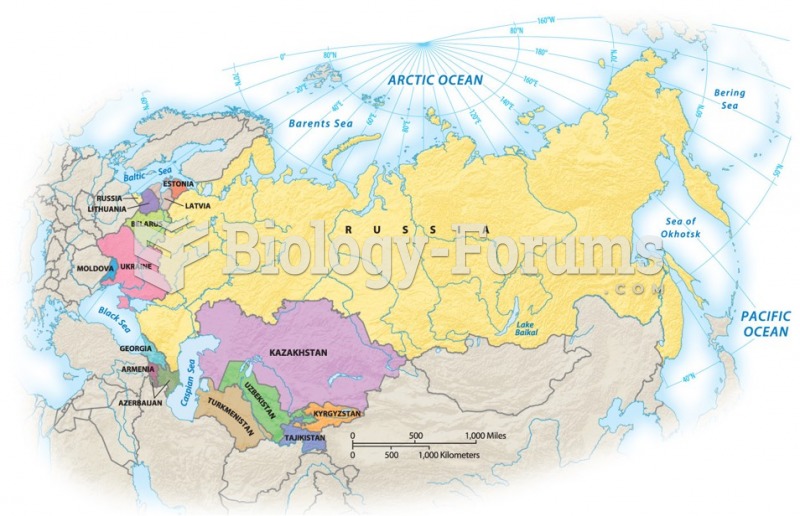|
|
|
Adult head lice are gray, about ? inch long, and often have a tiny dot on their backs. A female can lay between 50 and 150 eggs within the several weeks that she is alive. They feed on human blood.
More than 2,500 barbiturates have been synthesized. At the height of their popularity, about 50 were marketed for human use.
People about to have surgery must tell their health care providers about all supplements they take.
Human stomach acid is strong enough to dissolve small pieces of metal such as razor blades or staples.
For about 100 years, scientists thought that peptic ulcers were caused by stress, spicy food, and alcohol. Later, researchers added stomach acid to the list of causes and began treating ulcers with antacids. Now it is known that peptic ulcers are predominantly caused by Helicobacter pylori, a spiral-shaped bacterium that normally exist in the stomach.







